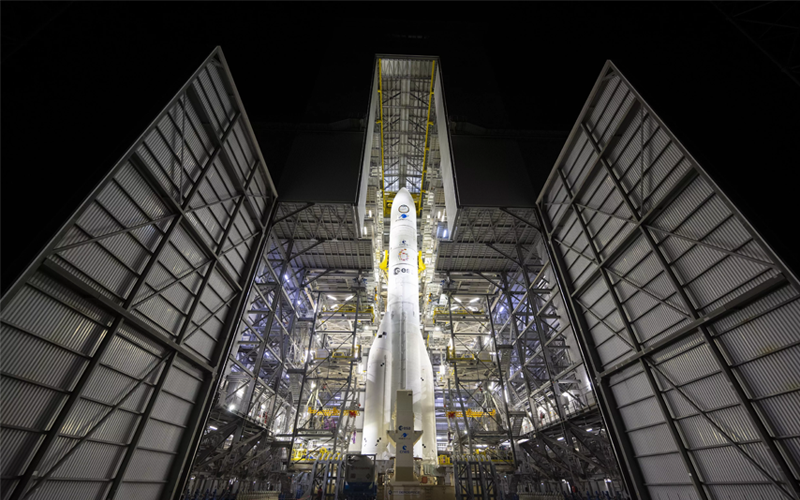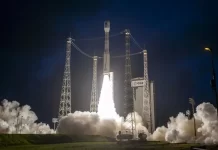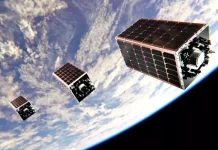
The European Space Agency’s member states have adopted a resolution that outlines what it considers to be a “European launch service.”
Over the last two weeks, Arianespace head of public affairs Charlotte Lang, CNES chairman and CEO Philippe Baptiste, and ESA director of space transportation Toni Tolker-Nielsen joined many in advocating for European rockets to be given preference when European institutions are purchasing launch services.
Calls to give preference to European rockets for institutional payloads have become increasingly loud following a decision by the European Organisation for the Exploitation of Meteorological Satellites (EUMETSAT) to ditch Ariane 6 in favour of a SpaceX Falcon 9 for the launch of its next weather satellite.
In order to require that European institutions select European launch services, a specific definition of what constitutes a European launch service needed to be agreed upon. On 5 July, the agency announced that its member states had adopted a resolution that “includes the definition of what constitutes a ‘European launch service.’”
While the 5 July ESA press release did not provide any additional details, the agency did provide a breakdown of what was outlined within the resolution when asked by European Spaceflight.
A launch service that qualifies as “European” will be located within the territories of ESA member states or member states of the EU. Elements of the launch service that must be within these territories include the company’s registered address, decision-making centers, launch system development and manufacturing locations, and launch operations sites.
In addition to the standard requirements, the resolution also addressed the possibility of a launch service not being considered European if it “is subject to the dominant influence of a non-European economic operator.” This will be determined by “ownership and financial participation, and/or by application of the rules that govern the launch service provider.”
Restrictions on ownership and financial participation could impact the likelihood of some European launch startups being considered for European institutional payloads. With the significant financial requirements needed to develop a rocket from scratch, some European launch startups have turned to US investors for funding. Isar Aerospace, for instance, has received funding from ATEL Ventures and the NATO Innovation Fund, a significantly influential non-EU entity.
ArianeGroup and its Ariane 6 vehicle will, however, check all the boxes. The company’s registered address, decision-making centres, rocket manufacturing facilities, and launch sites are all within the territories of ESA member states. Additionally, the development and operation of Ariane 6 are funded from the public coffers of ESA member states.
The inaugural flight of Ariane 6 is expected to be launched later today. The launch window will open at 20:00 CEST.




